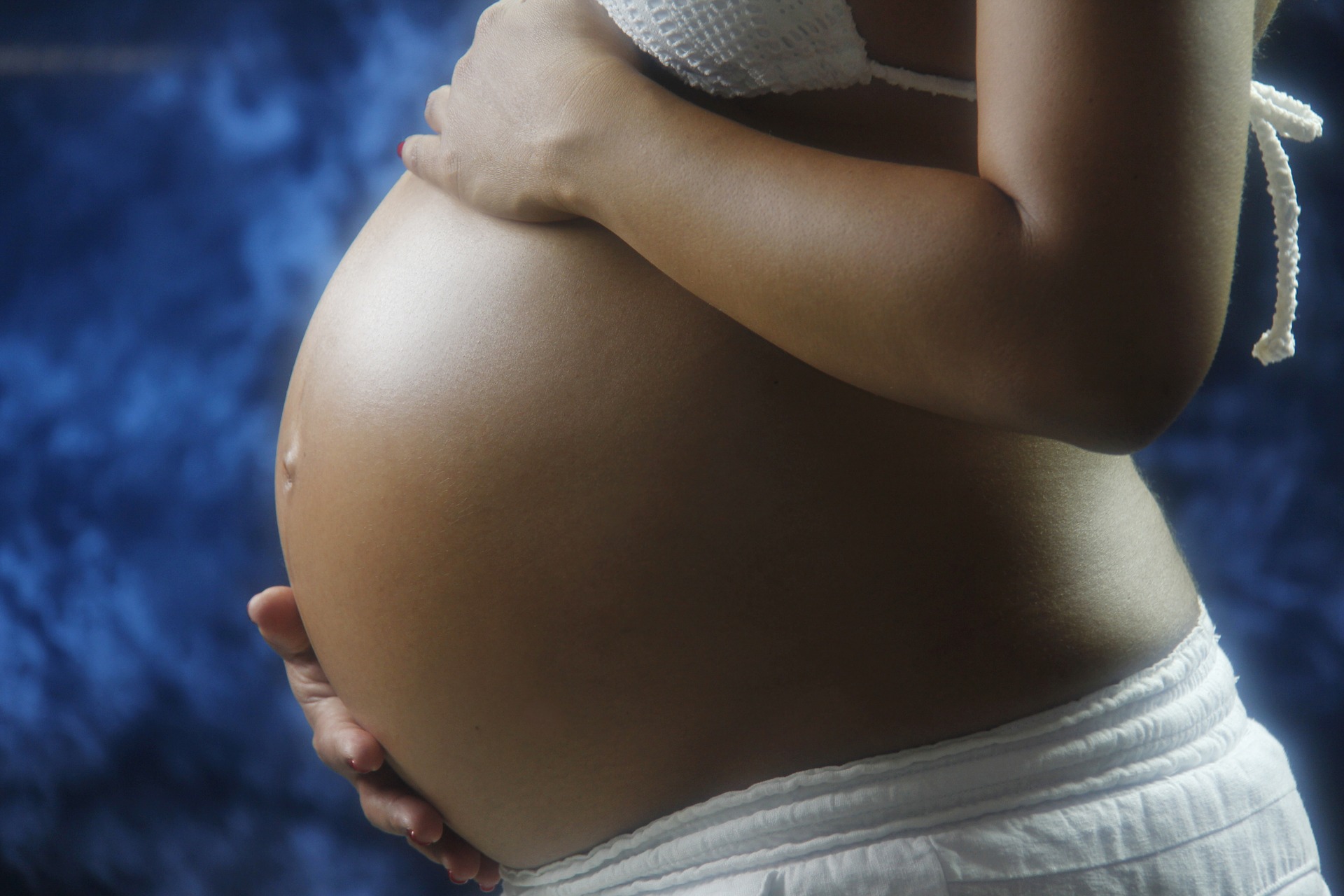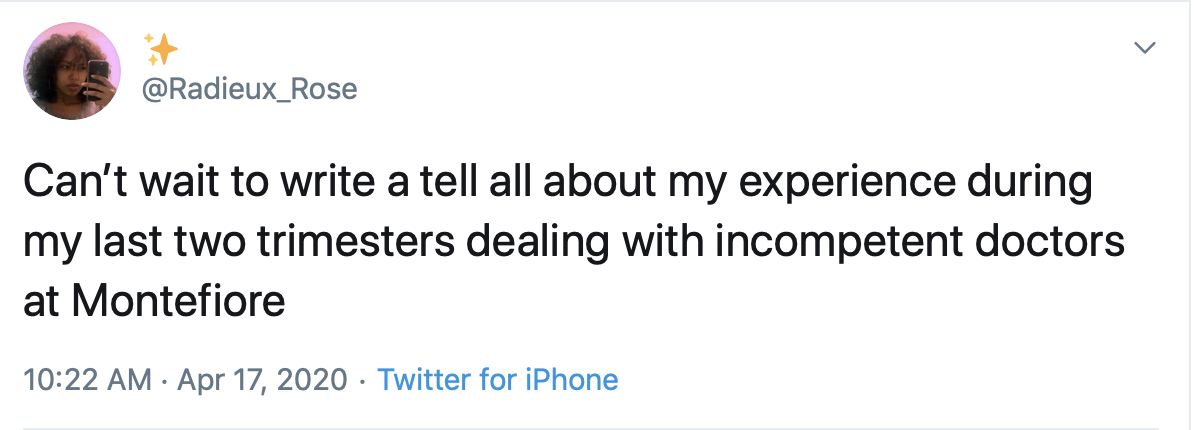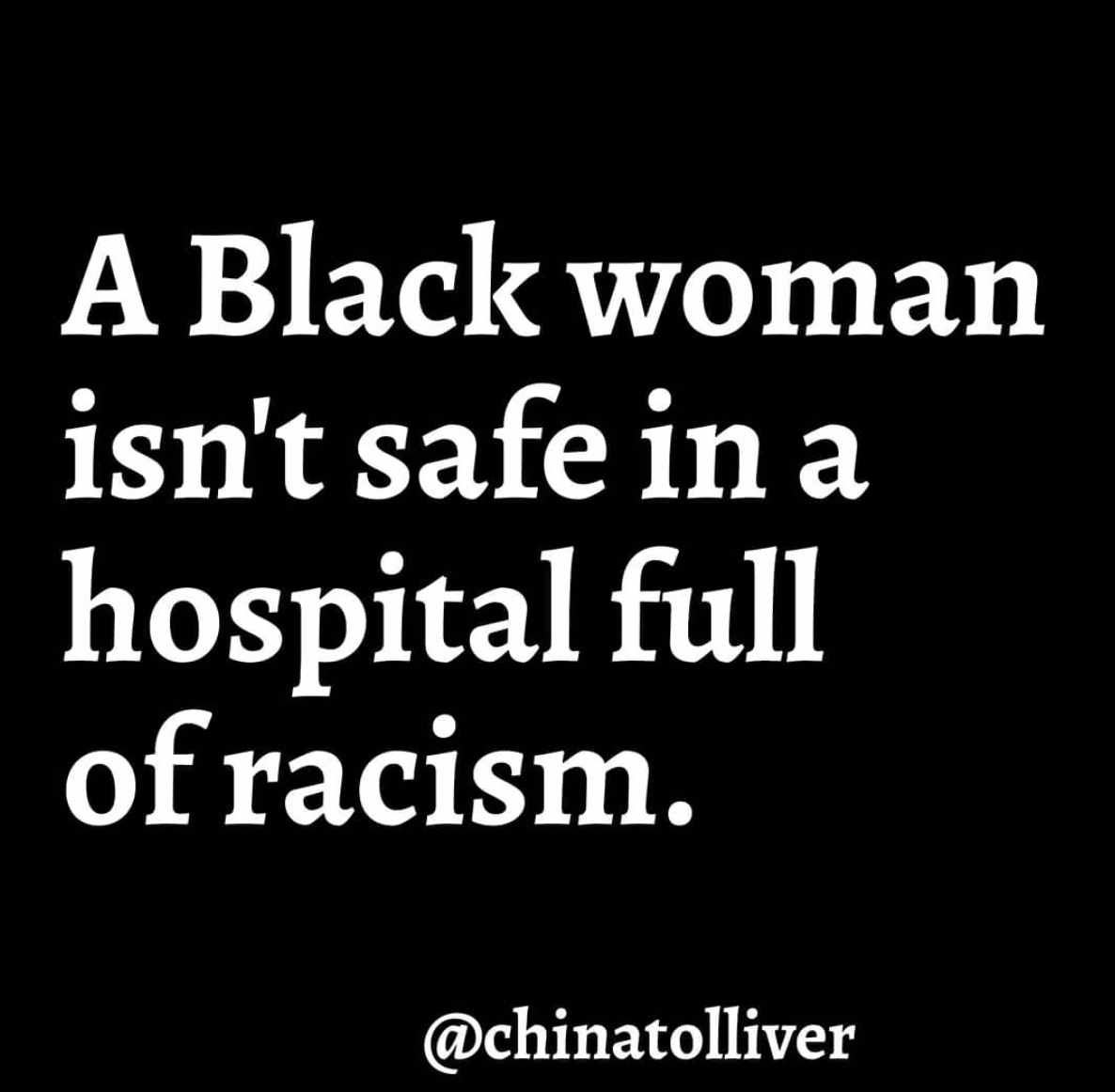
There are some moments in life that make me hold my baby longer and tighter than usual. A news story about a tragedy. A commercial about a cause. You know those moments. That story that makes your heart ache and has you checking on your sleeping baby… again.
When I saw Sha’Asia Washington’s beautiful maternity photos and read her story, I had one of those moments. I crept into my daughter’s room, picked her up, and cried. I prayed for Sha’Asia’s family and gave thanks that I’ve been able to witness 20 months of my child’s life.
Sha’Asia will never have that chance.
At 26 years old, Sha’Asia Washington was admitted to Woodhull Hospital in Brooklyn with preeclampsia. She wasn’t given any medication to control her blood pressure and went into cardiac arrest during her emergency C-section. Doctors successfully delivered her baby, Khloe, but were unable to revive Sha’Asia. Sha’Asia’s story is all too familiar.
Black women are, on average, three to four times more likely to die as a result of pregnancy-related complications than white women. Even when you control for socioeconomic status and education, Black women are more likely to die during or after birth.
Sha’Asia’s story is all too familiar.

In fact, among college-educated women, Black women are five times more likely to die from a pregnancy-related cause than white women. What does it mean? For Black women, money, power, and physical fitness aren’t protective against the bigoted grim reaper lurking the halls of the maternity ward.
Kira Dixon Johnson, Beyonce, Serena Williams, and even I have learned that giving birth while Black is like playing Russian Roulette. Racism impacts a Black woman’s access to care and her quality of care.
If Sha’Asia had been a white woman, she’d likely be alive. She’d probably be at home right now taking countless pictures of her munchkin, Googling foods to eat for milk production, and asking friends how to cut a newborn’s nails. She’d be doing what most of us did during those first few weeks postpartum. She is Khloe’s mom, and she should be with Khloe right now.
Giving birth while Black is like playing Russian Roulette.
According to the CDC, half of maternal deaths are preventable. Sha’Asia’s death was preventable.

Black women are dying in and after childbirth at an alarming rate, and you can help to raise awareness about this issue. I’m asking this group for help because I know that when moms decide to do something — like really decide to do something — it gets done. Period.
It’s OK if you don’t know a lot about this issue. There are a number of ways you can learn more and help. You can start by following the pages below. You can also copy and paste the facts below into a new post on your social media page(s). Finally, share Sha’Asia’s story. Forward this article or any article about her to spread awareness. Let’s stand together as mommas.
Birthing while Black should not be a death sentence.
Instagram pages to follow right now to learn more:
@4kira4moms
@blackmamasmatter
@theblackobgynproject
@blactavist
@thelanguageofbirth
@birthingjustice
@sistersong_woc
This is an urgent issue. Here’s what you should know (find these facts and more at nationalpartnership.org):
- Black women are three to four times more likely to experience a pregnancy-related death than white women.
- Black women are more likely to experience preventable maternal death compared with white women.
- Black women’s heightened risk of pregnancy-related death spans income and education levels.
- Seventy-five percent of Black women give birth at hospitals that serve predominantly Black populations, but these so-called “Black-serving hospitals” have higher rates of maternal complications than other hospitals. They also perform worse on 12 of 15 birth outcomes, including elective deliveries, non-elective cesarean births, and maternal mortality.












